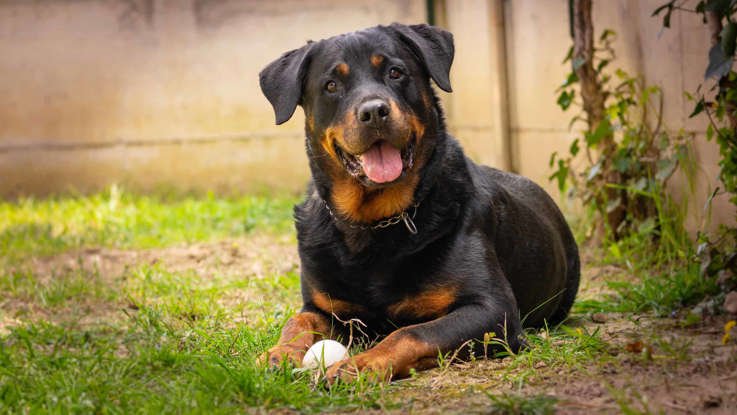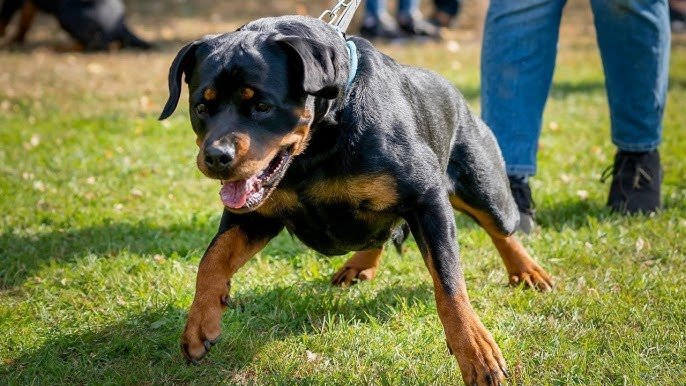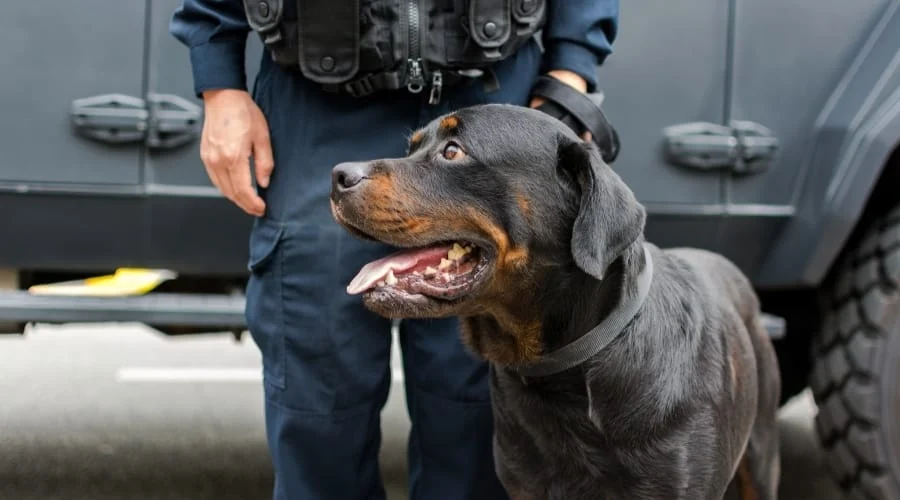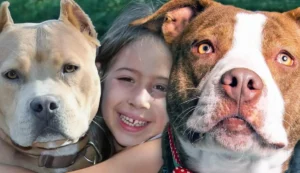
Rottweiler Puppy Development: Key Milestones and Training Tips
Raising a Rottweiler puppy is a rewarding experience, but it also requires a lot of attention, patience, and understanding. Like all puppies, Rottweilers go through several key development stages that affect their physical, emotional, and behavioral growth. This guide will cover the major milestones you can expect as your Rottweiler puppy grows and offer training tips to help you navigate each stage of their development.
1. The First 8 Weeks: The Critical Early Stage
The first two months of a Rottweiler puppy’s life are crucial for laying the foundation for their future behavior, health, and socialization. During this time, they experience rapid physical and mental growth.
Physical Development:
- Weight and Size: Rottweiler puppies are born weighing around 1 to 1.5 pounds and can more than double their weight by the time they reach 8 weeks.
- Teething: Rottweilers begin to lose their baby teeth at around 4 to 6 months. You’ll likely see chewing behavior increase during this time, so make sure to provide appropriate chew toys to protect your furniture and shoes.
Socialization and Training Tips:
- Socialization: The first 8 weeks are the perfect time for socializing your Rottweiler. Expose them to a variety of people, animals, and environments. This will help them develop confidence and prevent fear-based behaviors in the future.
- Start Basic Training: Begin teaching simple commands like “sit,” “stay,” and “come.” Rottweilers are highly intelligent and can begin to learn early, so consistent, positive reinforcement is key.
2. 8 to 12 Weeks: Early Puppyhood
By the time your Rottweiler reaches 8 weeks, they are still in the early stages of puppyhood. Their instincts are developing, and they begin to gain more control over their body.
Physical Development:
- Coordination and Strength: At this stage, your Rottweiler puppy is gaining more control over their muscles, and their coordination improves. They may start running and playing with greater confidence.
- Growth Spurts: Your puppy will continue to grow rapidly during this stage. You may notice them becoming more energetic and playful.
Training Tips:
- House Training: This is a great time to start potty training your Rottweiler. Establish a regular routine for bathroom breaks, and reward them when they go outside.
- Bite Inhibition: Rottweiler puppies tend to explore the world with their mouths, so teaching bite inhibition is important. If they bite too hard during play, let out a yelp or say “no” in a firm but gentle tone, then redirect them to a toy.
3. 3 to 6 Months: Adolescence and Increased Independence
As your Rottweiler moves into the adolescence stage, they’ll become more independent, energetic, and assertive. This is a time of major physical and mental changes.
Physical Development:
- Teething: The process of losing baby teeth continues during this stage, and their adult teeth will start to emerge. This can cause discomfort, so provide extra chew toys and avoid letting them chew on inappropriate items.
- Muscle and Bone Growth: Rottweilers are a large breed, so their muscle and bone development will be significant. You’ll notice that they are gaining strength, which may make training a bit more challenging as they test boundaries.
Training Tips:
- Crate Training: Crate training is crucial at this stage, as it gives your Rottweiler a safe and comfortable space to rest while also helping with house training.
- Basic Obedience: Your Rottweiler will need more consistent training to learn commands and how to behave in different situations. Reinforce basic commands such as “sit,” “stay,” and “heel.”
- Socialization Continues: Continue exposing your puppy to new environments, people, and other dogs. This period is critical for preventing aggression and anxiety in adult dogs.

4. 6 to 12 Months: Puberty and Increased Energy
As your Rottweiler reaches puberty, you’ll notice a surge in energy, and they may begin to assert themselves more. They are also becoming more aware of their surroundings and their role within the family.
Physical Development:
- Growth Slows but Continues: Growth slows down around 6 months, but your Rottweiler may still continue to fill out and gain muscle mass.
- Sexual Maturity: At this stage, your Rottweiler may start to show signs of sexual maturity. Female Rottweilers may go into heat, and males may begin to mark territory.
Training Tips:
- Firm but Fair Leadership: As your Rottweiler’s independence grows, it’s important to maintain firm, consistent leadership. Establish boundaries and continue reinforcing positive behaviors.
- Advanced Obedience Training: Your Rottweiler’s attention span may increase, making it a good time to start more advanced training. Teach commands like “leave it,” “come,” and “place” to promote better control.
- Mental Stimulation: Provide more mentally challenging activities to keep your Rottweiler engaged. Puzzle toys, scent work, and obedience drills can be great ways to tire out your puppy mentally.
5. 1 to 2 Years: Young Adult Stage
At 1 to 2 years old, your Rottweiler is transitioning into adulthood. They are becoming more emotionally mature and beginning to settle into their permanent personality.
Physical Development:
- Fully Grown: By the time your Rottweiler is 1 to 2 years old, they will have reached their full height and weight. Male Rottweilers typically weigh between 95 and 135 pounds, while females range from 80 to 100 pounds.
- Physical Strength: They are now strong, muscular dogs with lots of energy, so ongoing exercise is essential for maintaining a healthy weight and good physical condition.
Training Tips:
- Consistent Reinforcement: While your Rottweiler may be fully grown, they still need consistent reinforcement of the training you’ve done so far. Continue to practice basic obedience and introduce new challenges to keep their mind sharp.
- Socialization: Continue socializing your Rottweiler with new experiences, people, and animals. Socialization is an ongoing process that helps ensure your dog remains well-adjusted and friendly.
6. Common Training Challenges with Rottweiler Puppies
Rottweilers are known for their intelligence, loyalty, and protective instincts, but these traits can sometimes present challenges for first-time owners. Here are some common issues you may face and how to address them:
a. Dominance Issues:
As a naturally dominant breed, Rottweilers may test boundaries, especially during the adolescent stage. It’s essential to establish yourself as the leader with calm, consistent, and firm training. Positive reinforcement is key.
b. Chewing and Biting:
Puppies explore their world with their mouths, and Rottweilers are no exception. Providing appropriate chew toys and teaching bite inhibition will help prevent unwanted chewing behaviors.
c. Separation Anxiety:
Rottweilers are loyal and can develop separation anxiety if left alone for long periods. Start crate training early and ensure your puppy has mental stimulation when you’re not around.
Conclusion
Raising a Rottweiler puppy is a rewarding experience filled with key developmental milestones and training opportunities. By understanding the physical and behavioral changes that occur from puppyhood to adulthood, you can provide your Rottweiler with the structure, training, and care they need to grow into a well-behaved and healthy adult dog. With patience and consistency, your Rottweiler will thrive, making them a loyal and protective companion for years to come.







